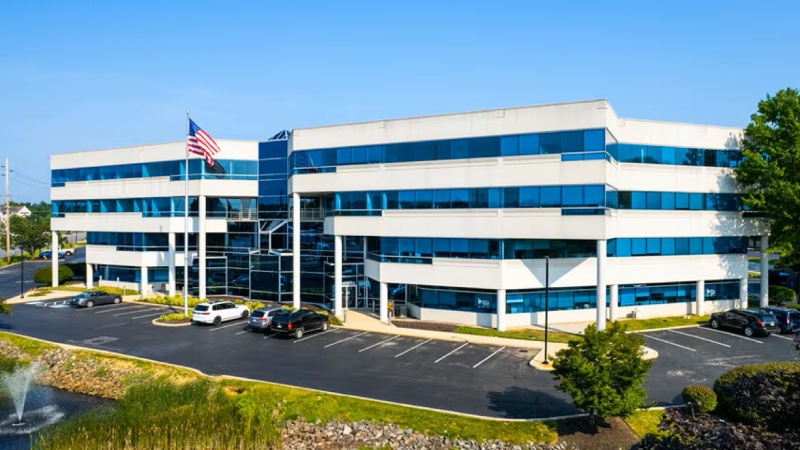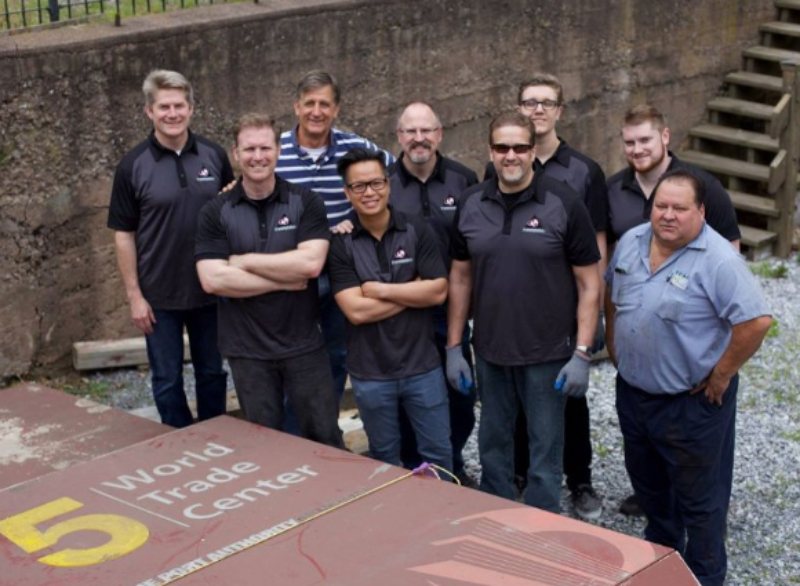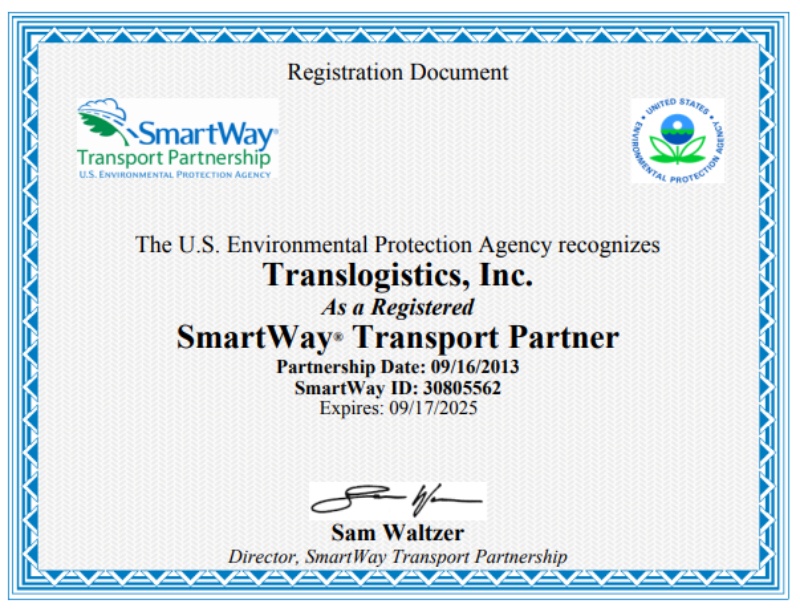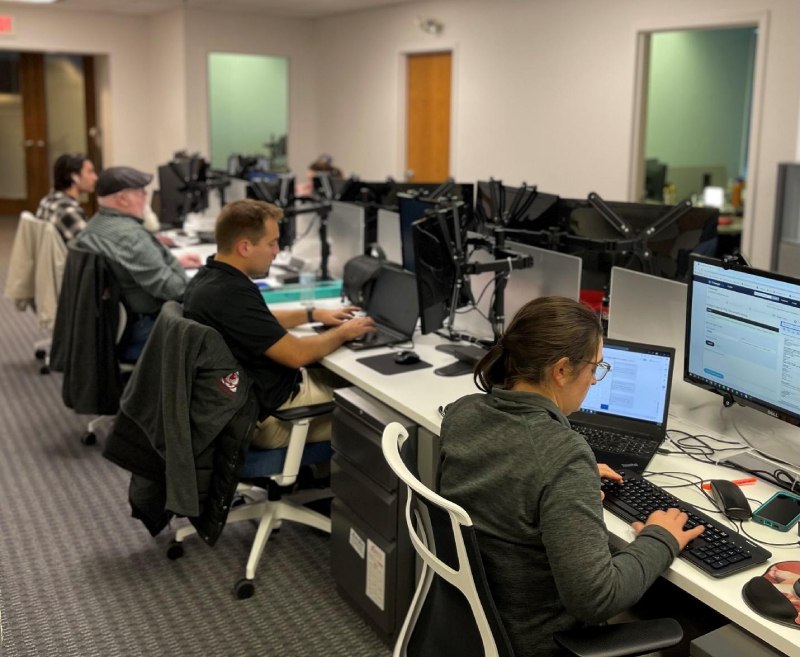One of the most crucial aspects of strategic planning is recognizing when to delegate to subject matter experts. This is especially important in supply chain management, where scalability is key to long-term success. Many companies invest in advanced Transportation Management Systems (TMS) but fail to leverage the necessary services that transform their supply chain into a scalable, optimized operation. This is where managed logistics becomes indispensable. If you’re not shipping with managed logistics services, you’re leaving money on the table—start optimizing your supply chain today!
Founded in 1994 as Translogistics, TLI has been providing shippers with managed logistics services along with TMS technology for decades. Our scalable approach ensures that our clients not only have the right technology but also the transportation expertise required to maximize efficiency and cost savings.

[TLI Corporate HQ: 1 E Uwchlan Ave, Suite 301, Exton PA 19341]
There are numerous components to a successful managed logistics strategy. A TMS integrated into an Enterprise Resource Planning (ERP) system is an essential tool, but without proper delegation of logistics functions, the system itself won’t create scalability. The real value lies in the expert services that drive supply chain success—services that TLI has been perfecting for over 30 years. So what is one critical area where shippers should delegate to a managed transportation provider? NMFC codes.
Shippers who rely solely on internal teams to manage NMFC updates, freight classifications, and dispute resolution often face costly reclassification fees and operational inefficiencies. This is where TLI’s managed logistics services provide a competitive edge. By integrating freight invoice auditing, NMFC compliance support, and real-time TMS automation, we take the guesswork out of classification, ensuring that every shipment moves at the most cost-effective and accurate rate.
For LTL shippers, staying ahead of National Motor Freight Classification (NMFC) code changes is critical to avoiding costly reclassification fees. The NMFC system determines the freight class of shipments based on factors like density, stowability, handling, and liability. When these codes are updated, failing to adjust can result in unexpected rate increases, invoice disputes, and operational delays. In July 2025, NMFC changes are expected to impact LTL freight classes across multiple product categories. Docket 2025-1 alone was over 711 pages, and while it should prove beneficial to shippers, it will concretely be so when incorporated into ViewPoint TMS as it automates this density based class selection for manufacturing and distribution companies. Shippers who aren’t proactively monitoring these updates risk paying significantly more due to misclassifications.
If a shipment is incorrectly classified, the carrier will reweigh and reclassify it, often resulting in:
- Higher freight costs due to incorrect classifications.
- Billing disputes that delay payments and strain relationships.
- Chargebacks & unexpected fees from reclassification audits.
Understanding and applying NMFC codes correctly is just one piece of a larger managed logistics strategy. Shippers who rely solely on internal teams to manage NMFC updates, freight classifications, and dispute resolution often face costly reclassification fees and operational inefficiencies. This is where TLI’s managed logistics services provide a competitive edge. By integrating freight invoice auditing, NMFC compliance support, and real-time TMS automation, we take the guesswork out of classification, ensuring that every shipment moves at the most cost-effective and accurate rate. Instead of reacting to misclassifications and surprise charges, our proactive approach helps shippers avoid them entirely. With TLI handling NMFC updates and compliance, shippers can focus on scalability, cost reduction, and supply chain efficiency—without the burden of managing complex freight classifications in-house.

[Image of TLI transportation World Trade Center debris for a 9/11 Memorial]
ViewPoint TMS has a built-in density calculator that automatically populates the correct freight class based on:
- Product description
- Weight
- Dimensions
This eliminates manual errors, reduces reclassification risks, and ensures that your freight is billed correctly upfront—and then confirmed as accurate post TLI’s freight invoice audit.
Many shippers struggle with PCF (pounds per cubic foot) calculations, a critical factor in determining the correct freight class. Miscalculations can lead to costly reclassifications, unexpected rate adjustments, and billing disputes. Instead of relying on manual estimates or risking errors, TLI simplifies the process with automated PCF calculations built directly into ViewPoint TMS. Our system ensures that every shipment is classified accurately by automatically determining the correct freight class based on weight, dimensions, and density. In addition to automation, TLI offers live support from NMFC experts—to assist reoccurring shippers with any classification concerns. Before a shipment ever leaves your dock, our team provides freight class validation, eliminating the risk of reclassification fees and ensuring that your LTL shipments are billed correctly from the start.
Shippers looking to scale their supply chains efficiently must have many other key managed logistics services in place to control costs, reduce risks, and optimize operations. One of the most critical services is Freight Claims Management, where TLI handles disputes, recovers losses, and ensures proper documentation, protecting shippers from unnecessary financial setbacks. Equally important is Freight Invoice Auditing, especially for LTL shippers, as upcoming NMFC changes could lead to increased reclassification fees. TLI’s ViewPoint TMS includes a built-in density calculator that automatically populates the correct freight class, eliminating manual entry errors. Shippers simply enter the description, weight, and dimensions, and the system does the rest—ensuring accurate classification and preventing costly billing surprises.
Another critical service is TLI’s Vendor Routing Portal, the industry’s best inbound vendor routing solution. This tool allows procurement and purchasing teams to track inbound shipments in real time, while TLI’s automated mode optimization ensures that the most cost-effective shipping methods are used for every load. Beyond these essential services, TLI provides custom transportation RFP management tailored to each shipper’s profile—considering cargo liability needs, PCF calculations, accessorial charges, and freight class breaks. Shippers with multiple subsidiaries can leverage combined buying power, significantly reducing freight costs. The more you ship with TLI, the more you save, making managed logistics the key to strategic scalability.
TLI is also proud to be SmartWay certified, a recognition awarded by the U.S. Environmental Protection Agency (EPA) for our commitment to sustainability and reducing carbon emissions in the transportation industry. As a SmartWay partner, TLI demonstrates a proactive approach to improving fuel efficiency, reducing greenhouse gas emissions, and promoting environmental responsibility across our logistics operations. This certification reflects our dedication to both optimizing supply chain efficiency and contributing to a cleaner, greener future.

TLI also operates a full-service brokerage division, offering LTL and FTL brokerage across all major equipment types, including dry van, reefer, flatbed, curtainside, conestoga, hot shot, low boys, double drops, and more. Additionally, TLI provides air shipment expedites and international freight quotes, allowing shippers to consolidate their freight spend and maximize purchasing power.
At the core of TLI’s managed logistics services is ViewPoint TMS, a powerful transportation management system that enables shippers to track shipments, tender pickups to carriers, archive PODs, analyze historical data, integrate with Microsoft PowerBI and ERPs, manage invoices, create bills of lading, and generate freight quotes—all in one place. To further enhance supply chain efficiency, TLI offers dedicated account managers, quarterly business reviews, RFP management, NMFC compliance support, vendor portal access, ERP integration, rebate programs, and contract forecasting.
Mode optimization is the process of selecting the most efficient and cost-effective mode of transportation. Many shippers are not aware of the huge cost differences between each mode of transportation, nor how to swiftly do rate comparisons, and this is where that TMS technology becomes critical for scalability. For example:
- Should a 56lb box be shipped via LTL or parcel? It depends.
- Should an 11-pallet order go volume LTL, with a load-to-ride carrier, or as a partial truckload? Again, it depends.
At TLI, our ViewPoint TMS shops the freight across multiple carriers using multiple modes of transportation to ensure our customers always get the best rates. When a shipper creates a bill of lading, our system pulls real-time rates via API integrations, allowing them to compare parcel and LTL options instantly.
So let’s assume that you have proper mode optimization in place. One of the most common frustrations for shippers is receiving unexpected reclassification fees or additional accessorial charges. With TLI’s managed logistics services, we ensure that all-in costs are visible upfront, eliminating surprises and preventing unnecessary expenses.
Our services go beyond simple rate shopping. We analyze each shipper’s unique profile, including:
- Cargo liability needs
- Packaging and consolidation factors (PCF)
- Accessorial usage trends
- Freight class breaks
Many 3PL providers in the market act as little more than freight brokers, offering basic services like securing trucks and resolving occasional issues. While freight brokerage is important, it should only be a small part of a comprehensive logistics solution, not the whole service. As a shipper, ask yourself: Is my logistics provider helping my business grow, or are they just booking loads? If your vendor isn’t offering cost-saving strategies, managing NMFC, supporting inbound routing, auditing freight invoices, or optimizing contracts, you may be missing out on valuable savings and efficiencies. For companies with multiple subsidiaries, TLI can leverage collective buying power to secure even greater savings. The more you ship with TLI, the more you save.
One warning sign is when multiple facilities operate independently. If each location negotiates separate carrier agreements and follows different freight management processes, you’re probably overpaying. A true managed logistics partner, like TLI, takes a broad view, consolidating shipments across facilities, using buying power to negotiate better rates, and leveraging data-driven strategies. If your vendor hasn’t offered these opportunities, it’s worth questioning whether they’re working in your best interest or simply collecting commissions on booked freight. Brokerage is vital for filling capacity gaps and securing spot-market rates, but it’s just one piece of the puzzle.

[Dedicated TLI Representatives Delivering Scalable Solutions for Strategic Shippers]
TLI also operates a brokerage division. However, what sets TLI apart is our proactive approach. We don’t just respond to your freight needs; we work to optimize costs, improve efficiency, and develop long-term strategies to help your business scale. That’s why our customers stay with us—our focus on contract management, facility consolidation, and leveraging buying power ensures we provide the best rates and services. If you’re only working with a brokerage-focused 3PL, you’re leaving savings on the table. It’s time to upgrade to true managed logistics with TLI that covers:
- Parcel
- LTL and FTL Brokerage – Handling van, reefer, flatbed, curtainside, conestoga, and hot shot freight.
- Specialized Equipment – Including RGN motor carrier, lowboys, and double drops.
- Expedited and International Shipping – Air shipments and global freight solutions.
Stop wasting money and start scaling strategically with managed logistics. If you’re not shipping with TLI, you’re wasting money. Whether you need optimized inbound vendor routing, comprehensive freight auditing, or a fully integrated TMS, TLI delivers solutions that drive real savings and operational efficiency. Consolidate your logistics with TLI today and experience the benefits of true supply chain scalability. Supply chain scalability begins with an integrated TMS and managed logistics processes locked in place.